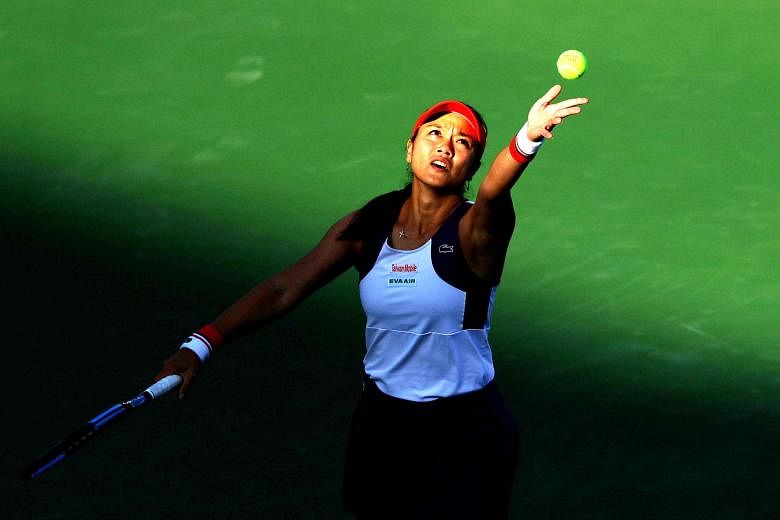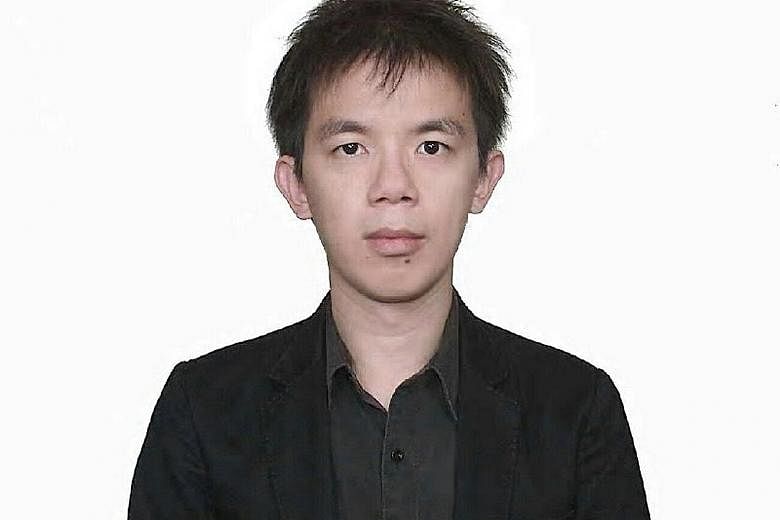Two weeks ago, Chan Yung-jan became Taiwan's first tennis player to win a trophy at the US Open and its second Grand Slam winner after she and her partner, the legendary Martina Hingis, won the women's doubles title.
With skills compared by Hingis to those of a "ninja warrior", photogenic looks and a warm relationship with the mainstream media, Chan has the potential to achieve sports superstardom in Taiwan.
Yet, instead of being lauded as a "Light of Taiwan" - as Taiwanese high achievers in the international arena are routinely called - for the victory, she is now facing the biggest public relations crisis of her life.
The day before Chan flew to America for the US Open, she pulled out of the mixed doubles semi-finals at the Taipei 2017 Universiade, the biggest sports event Taiwan has held, after winning gold in both women's singles and doubles, citing a physical condition. Her mixed doubles partner, Hsieh Cheng-peng, had to forfeit the match.
Hsieh's sister, Taiwan's other Grand Slam doubles champion and former world women's doubles No. 1 Su-wei, slammed Chan on Facebook for abandoning her brother. The post triggered a sea of criticism against Chan, whom many began to suspect had used a physical condition as an excuse to bail out of the Universiade in order to compete in the US Open.
After clinching the US Open title, Chan issued a statement on Sept 10 apologising to Hsieh Cheng-peng and Taiwanese sports fans, but insisted she did not expect to drop out and was surprised by her physical condition.
Instead of calming the critics, Chan's statement seemed to have prompted even more criticism.
After weeks of silence, Hsieh Cheng-peng spoke up, accusing Chan of trying to secure her place in the mixed doubles even though she was aware of the potential scheduling conflict. He also alleged that Chan faked her illness and asked him to play along with her lies.

It is highly unusual for an accomplished Taiwanese athlete such as Chan to face such an onslaught of criticisms, even if the public believed she had dropped out on purpose.
The Taiwanese people have long had high regard for their compatriots who do well in international matches. They are seen as national heroes, earning much-needed international recognition for Taiwan.
The public maintained its support for the "Lights of Taiwan" through scandals such as extramarital affairs, performance slumps and even involvement in game rigging. But one thing the Taiwanese public dislikes more than it admires international winners is bullying, especially when it comes at the expense of the little guy.
Sports exploits provide an alternative route to global exposure and national pride for the diplomatically challenged Taiwan.
The same restriction in the international community is also the reason many in Taiwan have a special affinity for the underprivileged.
The controversy has also become a turning point for the tennis player, as more allegations of similar power plays by the Chan team surfaced, tainting her image.
Chan's Universiade controversy has struck a chord in Taiwanese society. As backlash over her post-US Open statement has shown, winning is no longer the only thing that matters in Taiwan.
The Taiwanese public does not necessarily disagree with Chan's choice of the US Open over the Universiade; what it is against is the influence-peddling allegedly engaged in by the Chan team, and what many see as Chan's unwillingness to give younger players a chance in the Universiade by taking up all the opportunities at the games despite her scheduling difficulties.
- This is a series of columns on global affairs written by top editors and columnists from members of the Asia News Network and published in newspapers and websites across the region.


